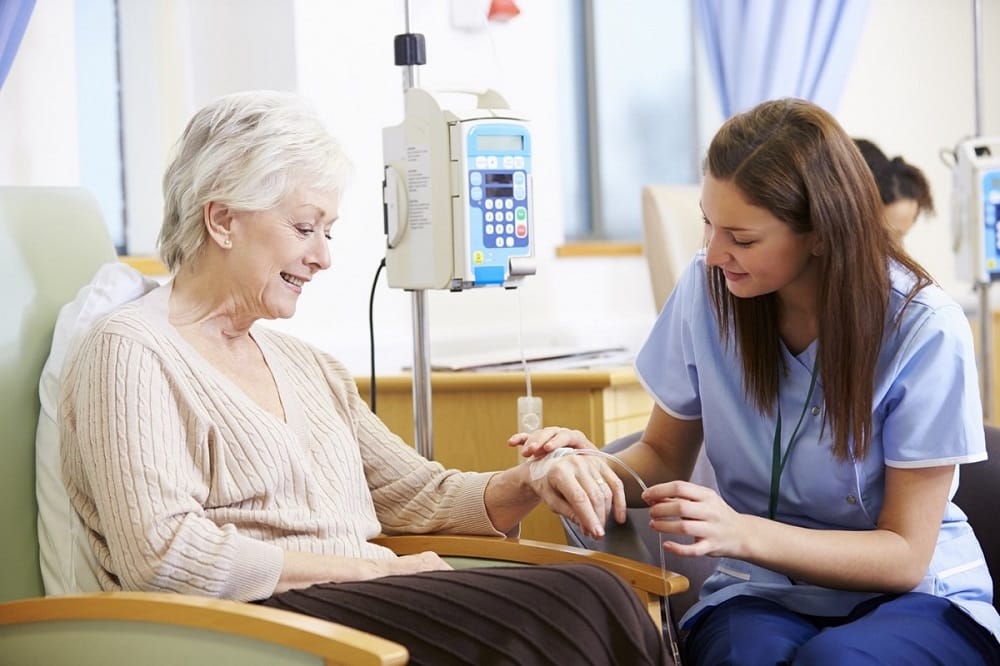Oncologists are specialized in treating and diagnosing people who have cancer. Oncologists design a treatment plan if someone has cancer which is based on detailed pathology reports that say which type of cancer the patient has and how much it has developed. They also figure out how fast is likely to spread and what parts of the patient body are involved. Most cancers are treated with a combination of therapies, and there are several types of oncologists.
Types of Oncologists
There are different types of oncologist depending on the nature, stage, and location of cancer that offer their specialized services for the treatment of cancer. The field of oncology includes three main divisions-medical, surgical and radiation.
1. Medical oncologists
Medical oncologists are specialized in treating cancer by using chemotherapy, hormonal therapies and other targeted treatment. They also treat a cancer patient with biological therapies. They help their patients to manage the side effects and also help to monitor and maintain well-being. Even after treatment, the patient needs to follow the advice and tips that are recommended by the oncologists.
2. Radiation oncologists
Radiation oncologists are doctors who treat cancer patients by using high energy photon beams to target and destroy all the cancer cells. Mainly one-half of all the patients that suffer from cancer will have radiation treatments as part of their cancer care. Some of the cancer treatments respond best to small seeds of the irradiated material implanted in the affected area. Still, the others respond best to intense beams of the radiation which are highly targeted, and this is called radiosurgery.
Radiation oncologists use the radiations to reduce the tumour or slow the growth of tumour without affecting the neighbour tissues if it is not possible to remove all the cancer cells altogether. The main motive of the therapy is to improve the patients quality of life by controlling the growth of the tumour and related symptoms.
Radiation oncologists undertake brachytherapy also to treat the patient of cancer. To perform this therapy, radioactive sources are implanted directly into the tumour or next to the tumour. Depending on the type of cancer, the radioactive sources may be left in the pace permanently or destroyed at the end of every treatment session.
3. Surgical oncologists
Surgical oncologists are a general surgeon who undertakes additional training in oncology and related to the process of the surgery. Surgical oncologists are also specialized in performing certain types of biopsies in order to help diagnose and treat cancer.
 Surgical oncologists mainly perform biopsies and remove a small portion of tissue so that it can be checked for the cancer cells. If cancer cells are present, then the patient needs to see the surgical oncologists again. But this time the doctor will have to remove the tumour and surrounding tissues. The surgical oncologists help to prepare and recover from any surgical procedures which patients have during the treatment of cancer.
Surgical oncologists mainly perform biopsies and remove a small portion of tissue so that it can be checked for the cancer cells. If cancer cells are present, then the patient needs to see the surgical oncologists again. But this time the doctor will have to remove the tumour and surrounding tissues. The surgical oncologists help to prepare and recover from any surgical procedures which patients have during the treatment of cancer.
4. Pediatric oncologists
Pediatric oncologists mainly treat and diagnose children who have cancer. They also educate families whose children are undergoing the treatment of cancer. There are some cancers which affect the children and young teenagers like a brain tumour, leukaemia, Ewing’s sarcoma and osteosarcoma.
5. Gynecologic oncologists
Gynecologic oncologists mainly treat female cancer patients that have cancer in their reproductive system, which includes ovarian cancer, cervical cancer, uterine cancer and others. They are trained obstetrician gynaecologists who take the additional fellowship to sub-specialize in the field of oncology.
They also treat complicated gynaecological conditions which are not cancerous such as endometriosis and fibroid tumours. Like other specialists, if cancer, gynaecological oncologists have training for several years on cancers affecting women.
6. Hematologist-Oncologist
Haematologist oncologists diagnose and treat cancer patients who have blood cancers like leukaemia, multiple myeloma and lymphoma.
7. Neuro-Oncologist
Neuro oncologists are doctors who are dedicated to the treatment of cancers which are mainly related to brain, spine and peripheral nerves.
What Kind Of Training Do Oncologists Have?
Oncology is a subspeciality of internal medicine and after graduating from medical school and after becoming a licensed physician, the doctor must complete a three-year residency in internal medicine.
After that, he/she must complete further two or three years in a medical oncology fellowship and surgical oncologists need to complete a general surgical residency followed by a two-year surgical oncology fellowship.
To become a radiation oncologist, it includes a five-year procedure which consists of an internship in internal medicine and radiology.
Conclusion
Oncologists are the primary health care provider for a cancer patient and lead to the development of the patient’s treatment. They work in conjunction with the other medical treatments to get better results. Oncologists are responsible heads who continue with the flow ups and checkups of the patients and perform post-treatment. You must consult an oncologist if you suffer from any related condition.

